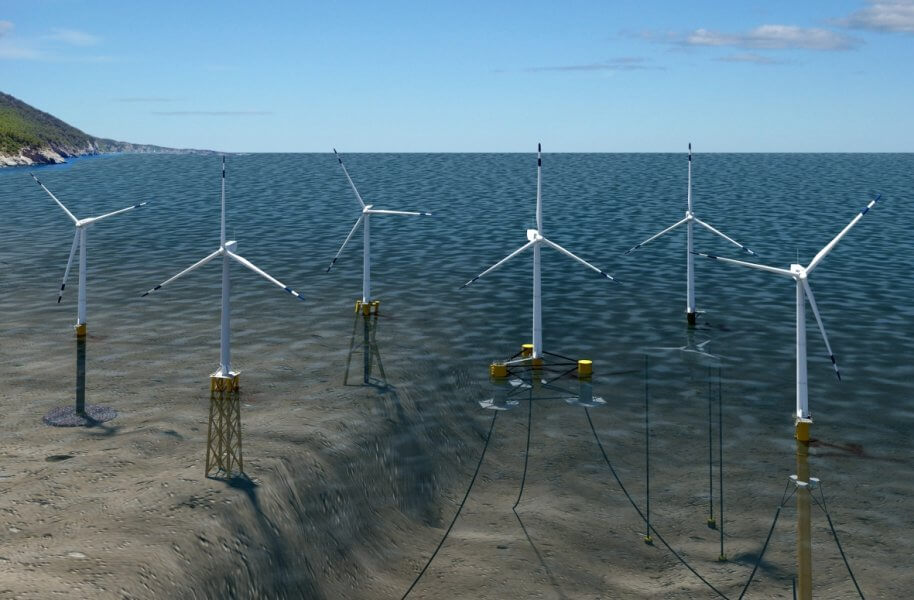The solution, as Weinstein sees it, is to build floating turbines. Offshore wind power is following a progression that oil and gas companies charted with drilling rigs: moving from onshore to offshore to floating installations, Weinstein said.
Weinstein has been involved in some of the world’s first demonstration projects for floating wind power, including a 50 megawatt installation in Scotland. In total, about 125 megawatts of demonstration projects have been installed globally, and another 125 megawatts are under construction.
And the pipeline is growing quickly. In total, over 60 gigawatts of offshore wind projects across the world are in the planning stages, with South Korea, the UK, Australia, and Brazil among the top countries in planned capacity.

JOSHUA BAUER, NATIONAL RENEWABLE ENERGY LABORATORY
A milestone, and what’s next
Now, California is joining the list of governments jumping into the floating wind farm game.
The state auctioned off 370,000 acres of the ocean, which was divided into five sites across two areas off the coast of California. The sites are in water up to 1,300 meters deep, and will require floating wind technology. My colleague James Temple published a story diving into the auction earlier this week.
Companies bid on sites that could collectively house enough wind turbines to generate as much as 4.5 gigawatts of electricity, enough to power over 1.5 million homes. In total, the sites sold for $757 million, with the largest site fetching nearly $174 million.
The auction represents a new phase for floating offshore wind. Less than a decade ago, Weinstein told me at EmTech, people didn’t take the technology seriously when she proposed plans to build farms in the state. “People looked at me and said, ‘you’ve got to be crazy, why are you doing this, this is not going to work,’” she said.
Now, companies could start the journey to building US floating wind farms in earnest. But the auction is just one of a series of many steps between conception and power generation. Companies have years of planning and building ahead before they start generating electricity from the sites. Securing the permits alone could take five to seven years.






More Stories
12 Benefits of Using Yext for Your SEO Strategy
How a Revops Agency Can Eliminate Chaos and Create Revenue Clarity
Why Exhibit Fabrication Is the Key to Memorable Brand Experiences